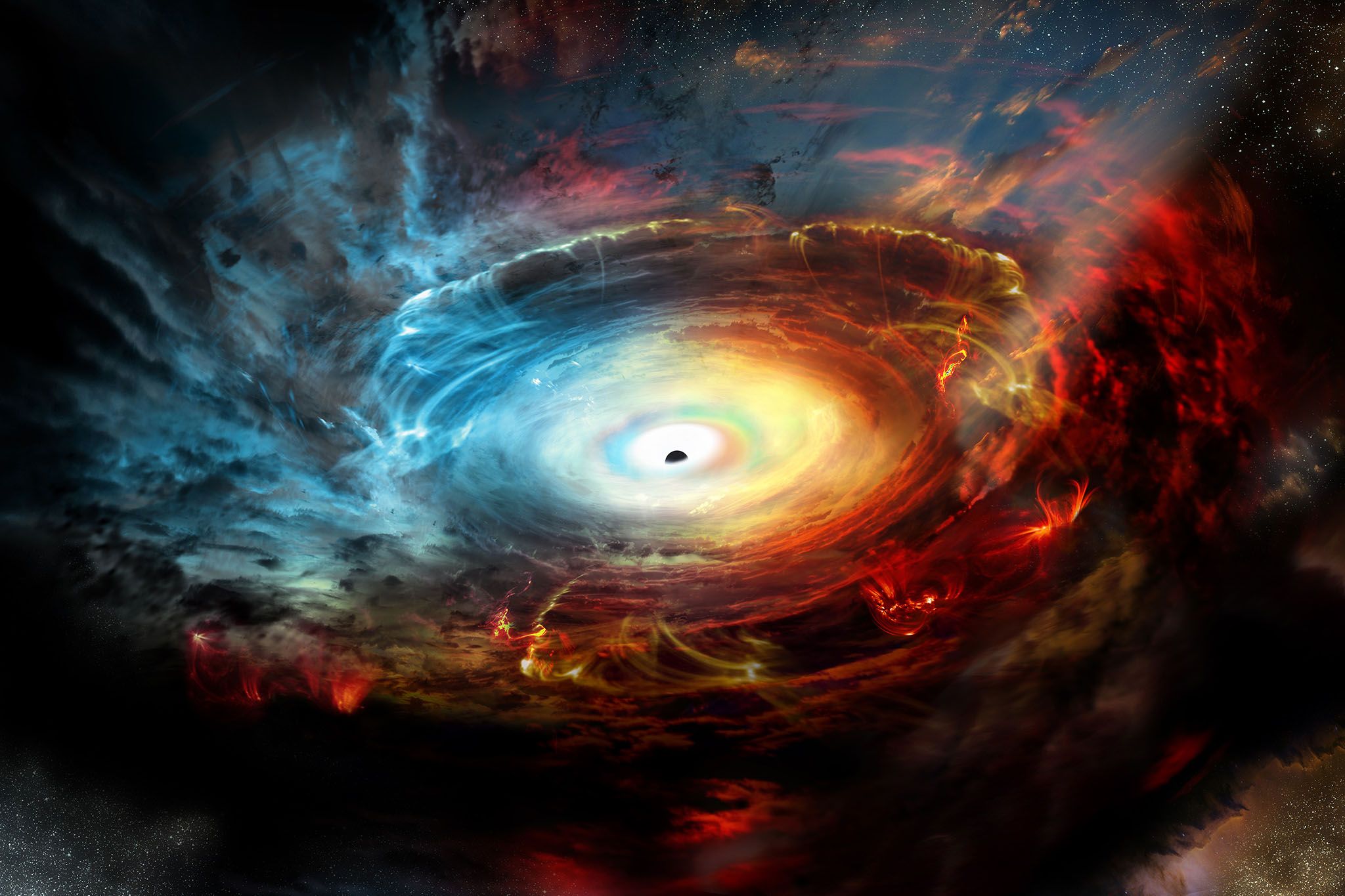Black Holes! What are they and why are they important to mankind? NAK Space Information News
Black holes have mesmerized and mind-boggled humans for centuries, with astrophysicists still discovering amazing new things about them everyday. Black holes are called as such due to their extreme density and thus high gravity blocking any sort of light from escaping.
Back in 1916, beloved science bad boy Albert Einstein came up with the idea of a black hole among his theory of relativity. John Wheeler, an American astronomers actually coined the term in 1967, but it wasn’t until 4 years later that an actual black hole was first discovered.
Although they are enormous in size, black holes span over a relatively smaller area. But the alarmingly high density and gravitational pull of a black hole makes it complicated for astrophysicists to study them. Instead, they study the change in radiation levels when a black hole draws in something.
Black holes are classified into three types: stellar black holes; intermediate ones; and supermassive ones. However, more on them in the next piece; In this one i’ll try to answer the most common question we all have about black holes i.e how do they work?
Scientists have established that a black hole consists of layers known as the singularity, the outer event horizon and the inner event horizon. The border that circles the mouth of a black hole is the event horizon. Once something crosses the event horizon, even light, escape is impossible due to consistent gravity all across this region.
Further inside after the inner event horizon lies the singularity. It is a singular area in the space-time continuum where the entire mass of the black hole is centered. In some rare instances, as matter gets sucked toward the event horizon, it bounces off away causing blinding streams of matter. These streams also indicate the location of the black hole; which always remains invisible to the eye.
This example brings in quantum mechanics into the black hole equation. The field claims that for every matter there is an antimatter, made up of particles and antiparticles. In a collision, the particle and antiparticles’ opposite charges and identical masses result in the destruction of both.
If such a pair encounters the border of the event horizon, theoretically one would get sucked into the mass while the other would be ejected away. This could lead to the reduction of the event horizon and thus a path to the death of a black hole. Classical mechanics, however, outrightly rejects the possibility of such a process. Unfortunately, we are yet to uncover the exact equations through which we can study the functioning of a black hole.
If you enjoyed this article and want to learn more about black holes, upvote, resteem and follow me @naufil

